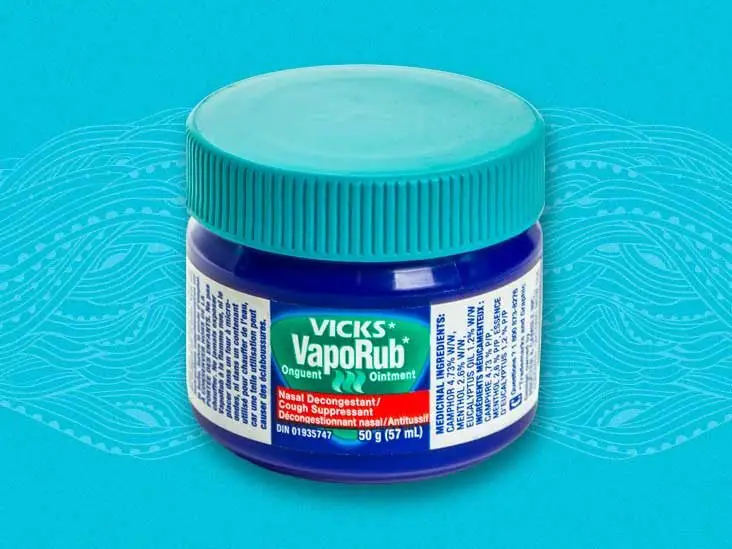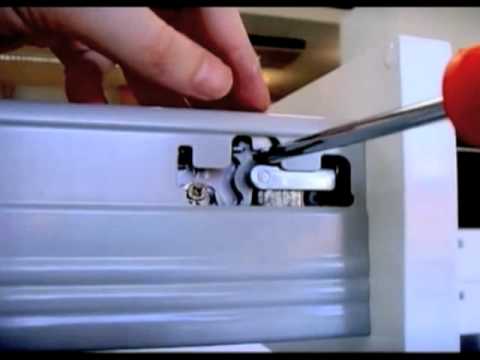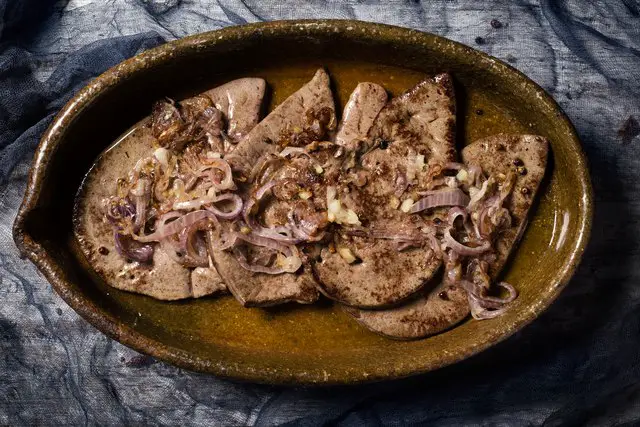
When it comes to storing cooked liver, it’s important to follow best practices to maximize freshness and ensure its taste and texture are preserved. Whether you have leftover cooked liver or want to store it for future use, proper storage techniques will help you avoid spoilage and maintain its quality.
Key Takeaways:
- Store cooked liver in the refrigerator at a temperature of 40°F (4°C) or lower.
- Cooked chicken liver can be stored in the fridge for three to four days.
- Consider freezing cooked liver for longer-term storage, but be aware that the taste and texture may change.
- If freezing cooked liver, drain excess moisture, separate into portions, and use freezer bags to protect it from freezer burn.
- Raw chicken livers can also be frozen, but may require additional seasoning and herbs when cooked from a frozen state.
Proper Storage of Raw Chicken Livers
When it comes to storing raw chicken livers, it is crucial to follow proper guidelines to maintain their freshness and prevent spoilage. The key to ensuring the longevity of raw chicken livers lies in storing them at the right temperature and keeping a close eye on any signs of spoilage.
Raw chicken livers should always be stored in the refrigerator at a temperature of 40°F (4°C) or lower. This ensures that the livers stay in the safe temperature range, discouraging the growth of harmful bacteria. It is important to note that raw chicken livers have a relatively short shelf life, lasting only 24 to 48 hours in the fridge.
One of the telltale signs of spoiled raw chicken liver is a strong ammonia-like smell. If the liver emits this unpleasant odor, it is a clear indication that it has gone bad and should not be consumed. Therefore, it is essential to inspect the smell before using raw chicken livers in any recipe.
| Signs of Spoiled Raw Chicken Livers | Non-Spoiled Raw Chicken Livers |
|---|---|
| Ammonia-like smell | Fresh odor |
| Discoloration (grayish or greenish tones) | Normal reddish-brown color |
| Slime or tackiness on the surface | Smooth and moist surface |
| Visible mold growth | No visible mold |
Proper storage of raw chicken livers helps minimize the risk of foodborne illnesses and ensures that they are safe to consume. Remember to always use your senses to assess the quality of raw chicken livers before incorporating them into your favorite dishes.
Proper Storage of Cooked Chicken Livers
When it comes to storing cooked chicken livers, maintaining the right temperature in your refrigerator is crucial for ensuring freshness and taste. The ideal temperature for your fridge should be set at 40°F (4°C) or lower. By keeping your cooked chicken livers at this temperature, you can safely store them for three to four days since the day they were cooked.
It is important to note that cooked chicken livers can spoil if they are not stored properly or if they are kept beyond their recommended storage time. To avoid any potential foodborne illnesses, it is advisable to only cook what you and your family will consume within the next few nights.
Best Practices for Storing Cooked Chicken Livers:
- Ensure your refrigerator temperature is set at 40°F (4°C) or lower.
- Cook only what you can consume within three to four days.
- Allow the cooked chicken livers to cool down before storing them in airtight containers.
- Label the containers with the date of cooking to easily track their freshness.
By following these best practices, you can maximize the freshness and shelf life of your cooked chicken livers. Remember, it is always better to be cautious and mindful of food storage to avoid any potential risks to your health.
| Storage Method | Temperature | Shelf Life |
|---|---|---|
| Refrigerator | 40°F (4°C) or lower | 3-4 days |
| Freezer | 0°F (-18°C) or lower | Up to 3 months |
Freezing Cooked Chicken Livers
If you decide to freeze cooked chicken livers, it is important to take a few steps to ensure their quality when thawed. The first step is to drain excess moisture from the cooked livers. This can be done by placing them in a colander and gently patting them dry with a paper towel. Removing excess moisture helps prevent ice crystals from forming, which can lead to freezer burn and affect the texture of the livers.
Once the excess moisture is removed, it is recommended to separate the cooked chicken livers into portions based on the number needed for each meal. This makes it easier to defrost only what you need, reducing waste and ensuring the best taste and texture for each serving. Packing the portions in freezer bags is a convenient way to store the cooked livers in the freezer.
When packing the cooked chicken livers in freezer bags, it is important to remove as much air as possible from the bag before sealing it. This helps prevent freezer burn and maintains the quality of the livers during storage. Freezer burn can affect the taste and texture of the livers, so taking the extra step to remove air from the bags is worth it.
Table: Detailed Steps for Freezing Cooked Chicken Livers
| Steps | Description |
|---|---|
| 1 | Drain excess moisture |
| 2 | Separate into portions |
| 3 | Pack in freezer bags |
| 4 | Remove air from bags |
It is important to note that freezing cooked chicken livers can alter their taste and texture. When thawed, the livers may be slightly different compared to when they were freshly cooked. However, many people find that the taste and texture changes are minimal and still enjoyable. By following these steps, you can safely freeze cooked chicken livers and have them on hand for future meals. Just remember to defrost them properly before cooking or consuming.
Freezing Raw Chicken Livers
When it comes to freezing raw chicken livers, there are a few key steps to ensure optimal results. First and foremost, make sure your freezer temperature is set to 32°F (0°C) or below. This ensures that the chicken livers are kept at a safe temperature to prevent any potential bacterial growth. It’s also important to drain excess moisture from the livers before freezing them. You can do this by placing them in a colander and patting them dry with a paper towel. Removing excess moisture helps prevent ice crystals from forming and maintains the texture of the livers.
Another important consideration when freezing raw chicken livers is portioning. It’s best to separate the livers into portions based on the number needed for each meal. This makes it easier to defrost and use them as needed without having to thaw the entire batch. Additionally, if you plan on using the frozen chicken livers for a specific recipe, you can also season them before freezing. This helps to enhance the flavor when cooking them from a frozen state, as freezing can sometimes dull the taste. Simply add your desired seasonings and herbs before packaging the livers for freezing.
To protect the quality and texture of the frozen raw chicken livers, it’s important to use proper packaging. Thick freezer bags are recommended to prevent any freezer burn and to maintain freshness. When packing the livers, try to remove as much air as possible from the bags before sealing. This helps prevent any potential freezer burn and ensures that the livers stay in optimal condition. Following these steps will help you safely freeze raw chicken livers and preserve their quality for future use.
| Freezing Raw Chicken Livers: Best Practices |
|---|
| Set freezer temperature to 32°F (0°C) or below |
| Drain excess moisture from the livers before freezing |
| Separate into portions for easy defrosting |
| Season with desired spices and herbs before freezing (optional) |
| Package in thick freezer bags, removing excess air |
Freezing Liver of Different Types
When it comes to freezing liver, whether it’s chicken, lamb, duck, turkey, or beef liver, the process is similar. Freezing liver allows you to extend its shelf life and have it readily available for future use. However, there are a few things to keep in mind to ensure the best results.
Firstly, it is recommended to freeze liver in its uncooked state to maintain its texture and flavor. Cooked liver may undergo changes in taste and consistency when thawed. However, if you have liver pate, it can be frozen without significant quality loss.
To freeze liver of different types, proper packaging is crucial. Use thick freezer bags to prevent odor absorption. Ensure that the liver is properly wrapped and sealed in the freezer bags to minimize the risk of freezer burn. Removing as much air as possible from the bags helps maintain the liver’s quality during freezing.
Here is an example of how you can freeze liver of different types:
| Liver Type | Packaging Instructions |
|---|---|
| Chicken Liver | Place the chicken liver in a thick freezer bag, ensuring it is properly wrapped and sealed. Remove excess air from the bag before sealing to prevent freezer burn. |
| Lamb Liver | Follow the same packaging instructions as for chicken liver. |
| Duck Liver | Follow the same packaging instructions as for chicken liver. |
| Turkey Liver | Follow the same packaging instructions as for chicken liver. |
| Beef Liver | Follow the same packaging instructions as for chicken liver. |
By following these guidelines, you can freeze liver of different types for up to three months without compromising its quality. Whether you plan to use it for cooking or as an ingredient in various dishes, having frozen liver readily available can save you time and ensure you always have this nutritious ingredient on hand.
Conclusion
In conclusion, proper storage of cooked liver is essential to maximize freshness and maintain its quality. By following the best practices outlined in this article, you can ensure that your cooked liver remains safe to eat and enjoyable to consume.
When it comes to storing raw chicken livers, it is crucial to keep them in the refrigerator at a temperature of 40°F (4°C) or lower. Remember that raw chicken livers have a limited shelf life of only 24 to 48 hours in the fridge before they may spoil. To avoid any potential health risks, always check for a strong ammonia-like smell, which indicates spoilage.
If you have leftover cooked chicken livers, you can store them in the refrigerator for three to four days, as long as the fridge’s temperature is maintained at 40°F (4°C) or lower. Alternatively, you can freeze the cooked chicken livers for extended storage. However, be aware that freezing may alter the taste and texture of the liver.
When freezing cooked chicken livers, be sure to drain excess moisture, separate them into portions, and pack them in freezer bags, removing as much air as possible before sealing. For raw chicken livers, drain excess moisture and separate into portions before freezing. It is important to note that seasonings and herbs may be necessary to enhance the taste when cooking raw chicken livers from a frozen state.
Lastly, when freezing different types of liver, such as chicken, lamb, duck, turkey, or beef liver, ensure proper packaging to prevent the absorption of odors. Freezing liver in its uncooked state is generally recommended, as cooked liver may experience changes in texture and flavor. However, liver pate can be frozen without significant quality loss. Remember to use thick freezer bags and remove as much air as possible to prevent freezer burn.
FAQ
How long do raw chicken livers last in the fridge?
Raw chicken livers only last 24 to 48 hours in the refrigerator at a temperature of 40°F (4°C) or lower.
How long can cooked chicken livers be stored in the fridge?
Cooked chicken livers can be stored in the fridge for at least three to four days as long as the fridge’s temperature is maintained at 40°F (4°C) or lower.
Can cooked chicken livers be frozen?
Yes, cooked chicken livers can be frozen. However, the taste and texture may be different once thawed.
How should cooked chicken livers be frozen?
To freeze cooked chicken livers, drain excess moisture, separate into portions, and pack them in freezer bags.
Can raw chicken livers be frozen?
Yes, raw chicken livers can be frozen. They may require additional seasoning and herbs when cooked from a frozen state.
Can different types of liver be frozen?
Yes, liver of different types, such as chicken, lamb, duck, turkey, or beef liver, can all be frozen for up to three months.
How should liver be packaged for freezing?
Liver should be packed in thick freezer bags to prevent the absorption of odors. Removing as much air as possible helps prevent freezer burn.
What is the maximum shelf life for cooked liver in the fridge?
Cooked liver should be consumed within three to four days when stored in the fridge.
What are the best practices for storing cooked liver?
The best practices for storing cooked liver include maintaining the proper fridge temperature, freezing excess portions, and properly packaging for freezer storage.




